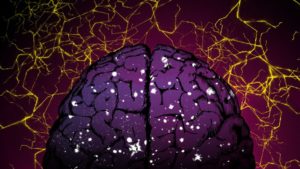Leave a Comment:
1 comment
[…] Dementia Patients Prescribed Dangerous Drugs […]
Reply
Learn about conventional, complementary, and integrative therapies.
Dealing with treatment side effects? Learn about evidence-based therapies to alleviate your symptoms.
Click the orange button to the right to learn more.

“About 13 per cent were diagnosed with dementia and, of those, 67 per cent were found to be prescribed potentially inappropriate medications.”
Full transparency. When the article linked below cites medical errors possibly leading to “increasd mortality” aka death, I consider the problem to be dangerous not inappropriate.
Dementia is an umbrella term for:

I am coming at the problem discussed in the article below from a different perspective. I am a long-term cancer survivor who developed brain damage (chemo brain) from the high-doses of toxic chemotherapies and radiation prescibed to me by my board certified medical doctors. Chemo brain is NOT well understood by oncology and I have no idea what my brain function will be like the the years ahead. So I study and write about dementia.
Which is why I focus on brain health. Good old fashioned therapies shown to enhance the health of my brain.
All four of these therapies are well studied. All four of these therapies enhance brain health. None of these therapies are toxic. As we all know, there are no guarauntees in life. But until someone develops a drug that is proven to enhance brain health, I will stick to my evidence-based, non-conventional therapies.
David Emerson
“Older adults diagnosed with dementia are frequently being prescribed potentially inappropriate medications, which leaves them at risk of delirium, worsening cognitive impairment, and increased mortality, a University of Otago study has found.
Lead author Dr. Sharmin Bala, of the Department of Preventive and Social Medicine, is calling for improvements to prescriptions and regular reviews to ensure safe prescribing.
The study, co-authored by Dr. Hamish Jamieson, of the University of Otago, Christchurch, and Dr. Prasad Nishtala, of the University of Bath, was published in the International Journal of Geriatric Psychiatry.
It consisted of more than 16,500 individuals who underwent an International Resident Assessment-Home Care assessment in 2015.
About 13 per cent were diagnosed with dementia and, of those, 67 per cent were found to be prescribed potentially inappropriate medications.
Potentially inappropriate medications are the prescribing of drugs where the risk outweighs the benefit, and could also represent under-prescribing of beneficial treatments, Dr. Bala says.
The study also found that 40 per cent of those diagnosed with dementia were prescribed anticholinergic medications, which could be potentially inappropriate to prescribe to such a cohort.
Anticholinergics are prescribed for a variety of medical conditions, such as, for the treatment of overactive bladder, allergies, depression, and the management of symptoms in Parkinson’s disease. It is well established that these drugs can cause impairment in cognition and exacerbate cognitive decline.
“The prescription of anticholinergic medications is associated with a higher risk of negative outcomes including risk of falls, delirium, worsening cognitive function, and increased mortality.
“The findings of the study indicate that the quality of prescribing needs to be improved. It is also imperative that medications prescribed to older adults with dementia, especially medications that have anticholinergicside effects, are reviewed regularly by medical professionals to ensure safe prescribing.”
Dementia is one of the principal syndromes linked with disability and dependence among older adults and is a major challenge to individuals, communities, and societies globally.
The estimated prevalence of dementia in New Zealand was more than 62,000 in 2016. By 2050 the number is predicted to increase to nearly 170,000.
Prescribing medications for older adults with dementia is challenging because of the risks associated with cognitive decline, behavioural and psychological disturbances, multiple medications, and their associated costs.
Dr. Bala says a radical component of optimal therapy for older adults with dementia is identifying and de-prescribing potentially inappropriate medications.
“Safe prescribing in individuals with dementia has the potential to mitigate critical adverse effects associated with the prescription of these medications and improve the quality of life in this vulnerable population.”
![]() Explore further: Older adults often prescribed meds linked to higher side effect risks
Explore further: Older adults often prescribed meds linked to higher side effect risks
[…] Dementia Patients Prescribed Dangerous Drugs […]
Reply